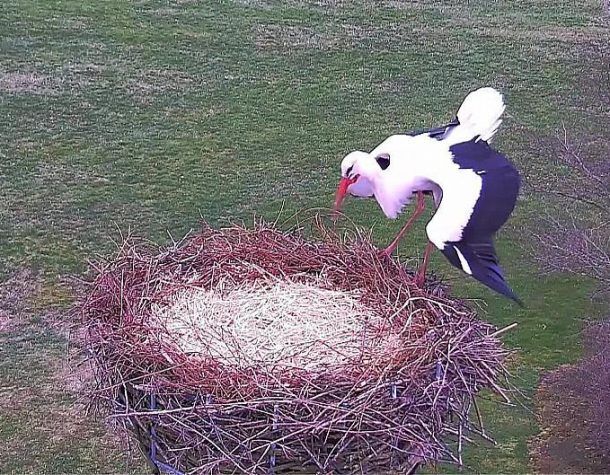The last few days have seen temperatures soar to over 10 degrees in Denmark and combined with little flowers popping up everywhere, it’s is a pretty good indicator that spring has arrived.
Now yet another hint of impending spring has fluttered in with Denmark’s first stork of the year being spotted on Sunday near Aakirkeby on Bornholm. And it this year’s stork is a very early bird indeed.
“It’s arrived extremely early. It’s very unusual and there is no doubt that it’s down to the mild weather and climate change in general,” said Jess Frederiksen, the head of stork advocacy organisation Storkene.dk.
“It’s come from Spain, Portugal or perhaps north Africa. With the southerly winds that have been prevalent recently, a lot of storks have come to Europe early this year. And that’s unique.”
READ MORE: Urban forest springing up at City Hall Square
Earlier arrivals
The stork in question has been ringed in Scania, which indicates that it is on its way to southern Sweden and made a pit stop in Bornholm to search for food.
In the past, storks used to arrive in Denmark in early April, but last year the first stork appeared on February 25, and many have been seen in other parts of Europe just south of Denmark. The birds take about 2 weeks to migrate north to their nesting grounds.
Last year, storks nested in Smedager in southern Jutland and in Gundsølille in mid-Jutland, while three storks wintered in Denmark this year – one near Veksø just west of Ballerup and an older pair in Gundsølille.















